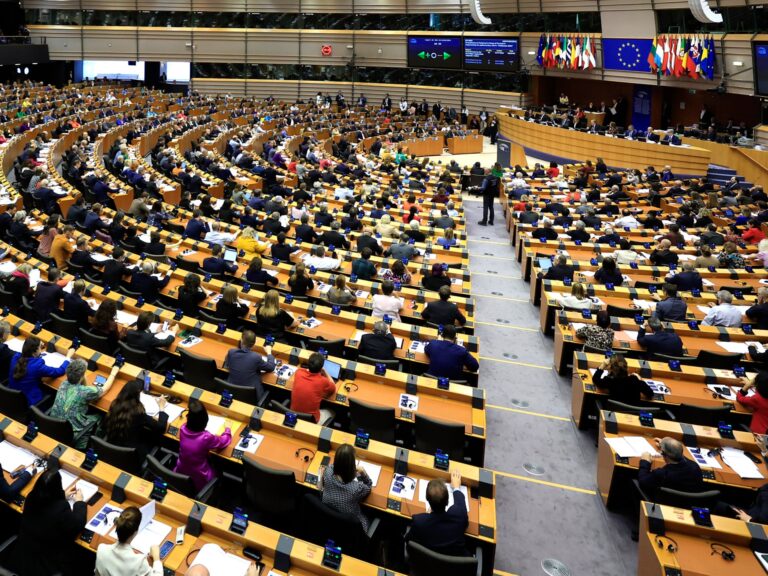The bill is expected to be used to block imports from China’s Xinjiang region.
European Union lawmakers are set to vote to ban products made using forced labor under a new law aimed at China, risking escalating tensions with Beijing.
The bill, which is scheduled to be voted on Tuesday, does not directly mention China, but many lawmakers believe it could be used to block imports from China that touch areas inhabited by the Muslim Uyghur minority. I’m looking forward to it.
Human rights groups say at least one million people, mostly from the Muslim minority, have been detained in northwestern China’s Xinjiang Uighur Autonomous Region and are being subjected to a range of abuses, including forced sterilization of women and forced labor.
After a vote in Strasbourg, France, the European Parliament gave the go-ahead, and the draft will now be officially approved by the 27 EU member states.
The EU has deployed a series of trade measures against China, including anti-subsidy investigations into Beijing’s support for green technologies such as solar panels.
The latest legislation aims to eradicate forced labor from European markets.
Under this regulation, EU countries will have to remove products found to have been made using forced labor, as well as products made within the region that contain materials made abroad using forced labor. be able to.
EU lawmaker María Manuel Leitao said: “Our Union, which should be a global champion of values, should not import products made with blood and tears at any stage of the supply chain and sell them in stores. “It is completely unacceptable for this product to continue to be sold.” Marquez pushed this document through Congress.
According to the International Labor Organization, approximately 27.6 million people were engaged in forced labor in 2021, including approximately 3.3 million children.
The new rules will give the European Commission the power to launch investigations if there are suspicions about supply chains in non-EU countries.
If the use of forced labor is proven, authorities will seize the products at borders and order their withdrawal from European markets and online retailers.
If the risk is in one Member State, that country’s local authorities will investigate products allegedly produced using forced labor.
For some products deemed to be at risk, importers will be required to provide detailed information about the manufacturer.
The EU will also create a regularly updated database on forced labor risks, including international reports to help commissions and national institutions assess possible violations of the law.
Critics say the law falls short of laws adopted by the U.S. government.
In 2021, the United States banned imports of products from Xinjiang unless companies can prove their production does not involve forced labor.
EU lawmaker Leitao Marquez called for closer cooperation with EU member states such as the United States “to prevent operators blocked by one country from selling forced labor products elsewhere.”

